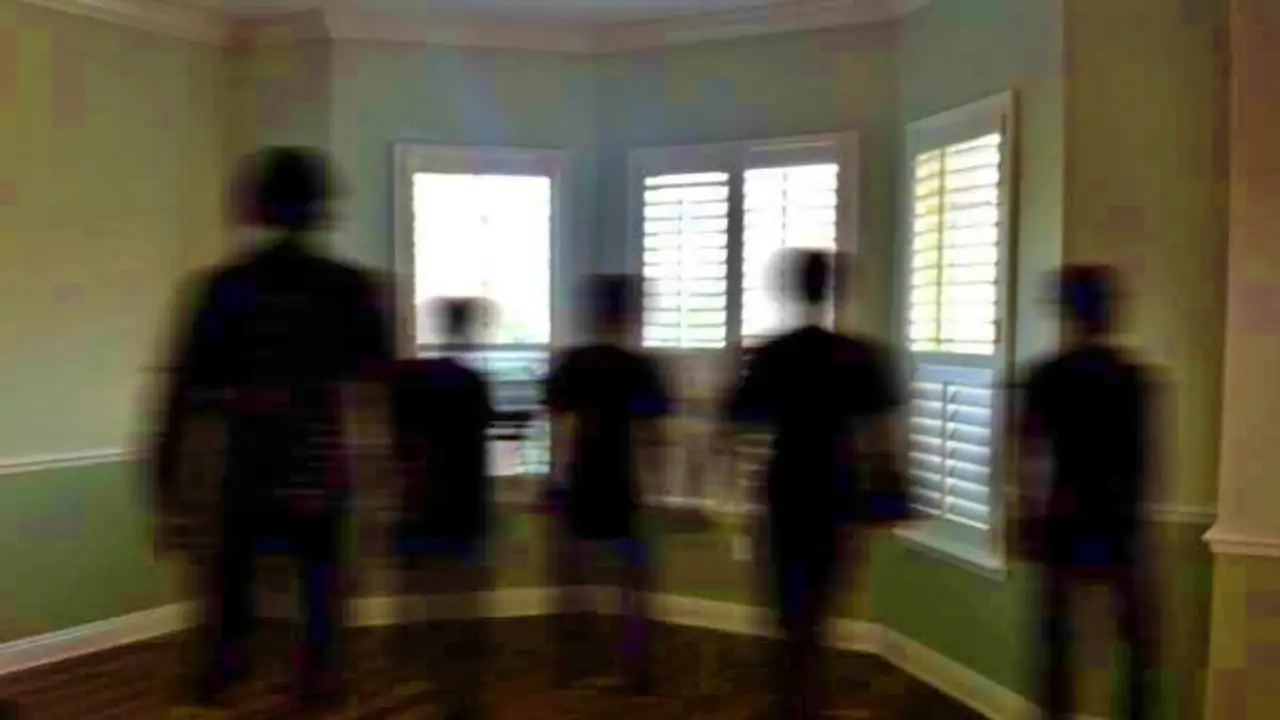Hardly met with universal appreciation by fans and supporters of crepuscular auteur George A. Romero, this nonetheless struck me as his effortlessly his best film since Monkey Shines (1988). Diary of the Dead doesn’t entirely recapture the relentless magic of his great original “Dead” trilogy, but it does restore the thematic and narrative drive, ghoulish humour, and cold evocation of crisis and fate that defined his best works to a surprising extent, and it’s a significant step forward from the flat and dutiful Land of the Dead (2005). Commencing with the appropriately self-satirising touch of a group of young student filmmakers engaged in making a mummy film under the supervision of their mordant, tippling Etonian film professor, Andrew Maxwell (Scott Wentworth), Romero throws this collective into the midst of the initial onslaught of the zombies, and they flee from their college in
The asocial ruthlessness of Romero’s defining works is, then, sharpened to a new point, but with a balancing sense of moral imperative to leaven the cynicism. This classic trait of Romero grazes against a more antic, mocking, gore-comic and crowd-pleasing sense of humour than he once offered, and the mixture of this with much more heavy-handed social commentary, is distinctly less integral. The failure of the disparate impulses to entirely gel is what generally holds the film back, but at the same time, it doesn’t descend into a comedic freak-show of the likes of Bruiser (2000), and it plants seeds of disquiet and menace that don’t entirely germinate until after it’s over. It helps that the overt humour is often very funny and even occasionally inspired and desolating in final effect, like the group’s encounter with a deaf and dumb Amish man (R.D. Reid) who’s approach to dealing with the zombies includes dynamite and a scythe, which he finishes up driving through his own skull to take out a creature that’s assaulting him, and the professor’s prowess with a bow and arrow proving startlingly keen. I also particularly like how Romero interpolates radio broadcasts from Night of the Living Dead (1968) to confirm the concurrency of events.
On the road the crew encounter thieving national guardsmen who have readily, happily abandoned their social responsibility, and a collective of black folk who, suddenly left to run things, sensibly stockpile and jealously defend supplies and weapons. Romero’s questioning bent feels out the edges of ethical problems, refusing to let the audience off the hook in likening the reactions of the living to the perverted facsimiles of the living to non-generic situations. The very close presents the spectacle of rednecks indulging their fantasies by blowing apart zombie women. Technically, it’s fascinating and extremely well-done, with excellent, judicious special effects and make-up that do seem to present the most amazing violence captured with apparently unblinking precision by the camera. The opening, in the guise of a news broadcast, offers context that references Dawn of the Dead’s start in a tenement slum, and establishes Romero’s evolving theme of a corrupting body politic, commencing with the infection of the bottom of the social ladder and working its way to the top: the final segment takes place in the huge mansion belonging to the family of Ridley (Philip Riccio), who was playing Jason’s mummy monster and finishes up living the role, and the remnants of the cast finally lock themselves away from the troubles of the world in that house’s capacious panic room.
The fat’s long since been trimmed off the group and those who are left have proven themselves capable at least as survivors and in the case of Maxwell, a warrior of an old and intelligent breed. Romero takes a couple of neat pot-shots at the modern school of zombie flick (“Dead things don’t move fast!”) whilst referencing his own famous ploys. Debra’s desire to get back to her family, which becomes something of a shining beacon for all the crew in the seeming promise of the nuclear family still being intact and welcoming, meets the inevitable, grim spectacle of her father being eaten by her mother and her younger brother trying to gnaw her head off before Maxwell gets him with a well-aimed arrow. The structuring lets the overall project down a bit: the last third, whilst darkening and deepening all the while, stumbles at a few turns. A late scene in which Jason’s leading lady, a brassy Texan girl, Tracy (Amy Lalonde), who finds herself acting out in essence the same schlock-horror situation she was for the movie within the movie, up to and including the exploitable moment of having her breasts bared, and the director still doing his own job but for a vastly different reason, is funny and gripping all at once, but the relative casualness of the tone cuts against the grain of the film’s increasing sense of threat and horror. But Romero’s point, that the process of filmmaking can be in itself parasitic and violent, is surprisingly self-critical and convincing.
Whilst Romero’s approach is more distinctly stolid, lacking the visceral intensity of the likes of Rec/Quarantine, which of course owe much to Romero in the first place, Diary stands up with De Palma’s Redacted for asking more probing questions of the rhetorical nature of the first-person film style, and the relevance of the characterisations and the sense of impending apocalypse are finally more satisfying than Cloverfield. Like Rec, it presents a case for the necessity of documenting the truth at the cost of moral initiative, but it also relentlessly criticises that tendency, skewering the Darwinian behaviour of documentary and news filmmakers in letting harsh misery play out before their lenses without feeling a need to engage. The film’s open-ended conclusion deliberately deconstructs the assurances of its voice-over and the entire motivating story of attempting to build a coherent sense of a world going mad: no amount of telling the truth, finally, actually changes it, and that can be, in contradictory fashion, a deeply unsatisfying thing. The acting is of a surprisingly high standard for such an unknown cast, especially Wentworth, whose mirror monologue towards the end is both a fine moment for his character and also a commentary on the film that works better than Romero’s other, more literalised pronouncements, provided chiefly by Debra who’s taken on the task of turning Jason’s project into an effective unit for the benefit of the world, after Jason throws his life away in a pointless gesture – another classic Romero touch. In spite of its shortcomings, Diary is a sign that the man who is possibly the most famous living proponent of the Horror genre still has some tricks up his sleeve.




















